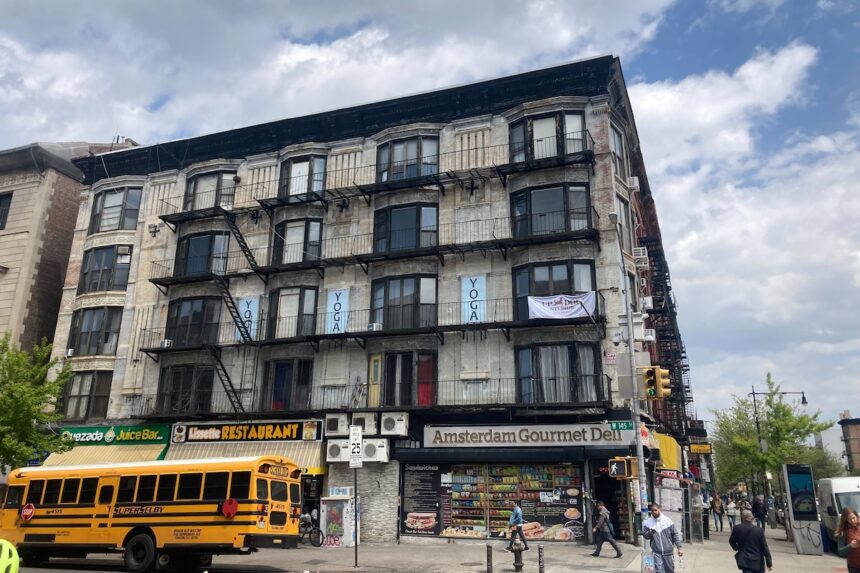Last week, my relationship with my landlord of four years became suddenly tense when I found out she had entered the apartment I share with my roommates to make a repair without giving us any notice. I subsequently asked that she let us know if she wants to drop by. We’re on a month-to-month lease (not my idea), so her immediate response to being told something she didn’t want to hear was to threaten to terminate the lease.
I’ve been here for a while and have been thinking about life in a different neighborhood anyway, so I thought that moving might not be so bad. What I found when I checked out listing sites is probably not news to you if you’re a renter in the city: $3,000 to live off the Halsey L stop? Who came up with that, and why didn’t anyone stop them? Even the “affordable housing” offered by the “housing lottery” (insane phrase) have rents at rates that would make tenants rent-burdened by the official metric (spending 30 percent of income or more on rent).
You might remember that in 2022, Mayor Adams proposed his “moonshot” goal of building more than 500,000 new housing units in New York over the course of a decade, at a rate of 50,000 a year. How’s that going? It turns out that last year, permits were issued for just over 16,000 new homes. A story in Bloomberg yesterday illustrated that our housing shortage is only going to get worse in the near future, as major real estate companies protest that the tax incentives they’re already offered aren’t good enough, and essentially hold the development of new housing in the city hostage.
Developers quoted by Bloomberg gripe that the new 485-x tax break and the newly extended 421-a tax break don’t give them enough money. One managing director threatens to repropose a Williamsburg tower as condos and market-rate apartments instead of affordable housing for seniors, and Douglas Durst, president of the Durst Organization, says that “it’s heartbreaking” that an Astoria plot his company owns “will remain an empty lot during a housing crisis” if his company is forced to pay the wages required by 485-x.
Even another developer quoted in the story, Alicia Glen, who was deputy mayor for housing and economic development under Bill de Blasio, isn’t buying that excuse, calling such warnings “a negotiation tactic” to get better tax breaks in future budgets. She says that what Durst means “is he can’t make as much money as he used to make.” (Glen would know: She had an extremely cozy relationship with developers during her tenure, close enough that she felt comfortable emailing them her cravings for “a burger and a bottle of Montrachet.”)
I am but a humble and naive renter, but yeah, what she said. Nothing in the article actually demonstrates that these companies are in any kind of genuine distress; rather, it’s just that people that own property are at liberty to hold it hostage during a historic housing crisis, in hopes of wringing out as much taxpayer money as they can. They found they can’t make exactly as much money as they thought they could. That happens in life, right? Why don’t I get to complain to the government when that happens to me?
Despite being a member of the housing majority in New York City, as a lowly renter, it’s not my place to expect much in terms of political representation, or dignity. I’m not a homeowner, or a “community landlord,” much less a tycoon. I just pay the amount of money a stranger has determined is appropriate for me to pay each month to remain sheltered. Perhaps I’m not smart enough to consider things like “market dynamics.” But even from down here on the second-lowest rung of the ladder, I’m starting to get the sense that something is seriously wrong with how we distribute housing in this city.
I was thinking about that between sets at the You Missed It show last night when I started talking to a white-haired guy named Rick Gillis who was milling among the young crowd. I asked for advice about my landlord situation. Rick is 74 years old, and he moved to Greenwich Village in the ’70s to teach transcendental meditation, but ended up teaching at the Henry George School of Social Science in Midtown (now he’s retired and takes acting classes—last night at Baby’s All Right, during a skit in musician Ernest Rareberrg‘s show, he played a beggar panhandling a group of Gen Z nuns).
Gillis was trying to explain to me the finer distinctions between Georgism and Marxism, but I had a head rush from smoking cigarettes too fast. He broke it down for me: “It’s very simple. Wealth is what you create, and you can’t create land, so you can’t own land.” He lives in a SoHo apartment, which is “rent-controlled, thank God,” he said. “But I’m not on the lease.” His “platonic companion” who was on the lease died in 2022, and his landlord immediately tried to evict him. “But I don’t define myself in terms of money woes or housing woes.”
—Adlan Jackson
Let’s just do the links:











